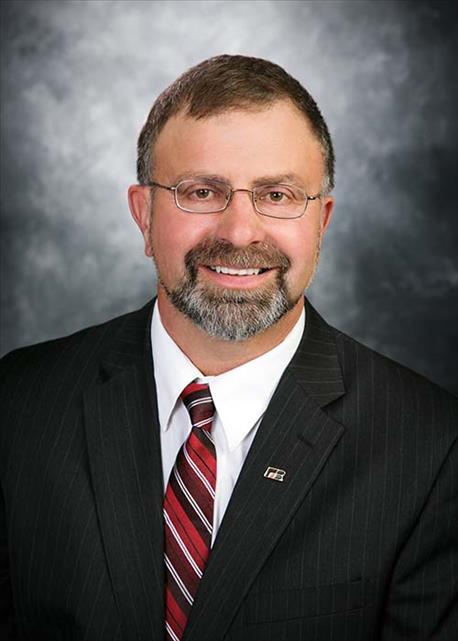
The regulatory challenges that impact farmers and ranchers and locally led solutions to natural resource concerns were discussed May 17 in the House Agriculture Subcommittee on Conservation and Forestry.
The subcommittee held a “Focus on the Farm Economy” hearing, continuing the series started April 14 focusing on the factors contributing to the 56% drop in net farm income over the past three years.
Related: Focus on Farm Economy: Immigration emerges as top issue

The House Agriculture Subcommittee on Conservation and Forestry. held a “Focus on the Farm Economy” hearing May 17. (Photo: Fuse/Thinkstock)
“It has become increasingly clear that some government agencies and environmental activist organizations ignore or otherwise discount the commitment our farmers, ranchers and foresters make to environmental stewardship,” said Rep. Glenn Thompson, R-Pennsylvania, subcommittee chairman, in his opening remarks. “The path the administration has chosen forces farmers and ranchers to spend more and more time complying with regulations.”
Impact of regulations
Farm businesses are different from other businesses in that they are unable to increase their prices to pay for the increased costs associated with regulations, testified Pennsylvania Farm Bureau president Richard Ebert, who operates a dairy farm.
“In order to come close to making sound cost-management decisions, farmers must have a thorough understanding of what their operational costs will likely be,” Ebert said. “We can’t make good decisions if regulatory officials are unable or unwilling to identify the boundaries of regulatory standards that will be imposed in the near future or the standards that are likely to be imposed for years to come.”

Richard Ebert testified before the House Agriculture Subcommittee on Conservation and Forestry.
Farmers are particularly frustrated by the approach being taken by the EPA, he said. Agency officials haven’t answered questions and they keep moving the goal post.
“Small business owners, especially farmers, cannot sensibly function or viably operate their businesses in such a regulatory climate and culture,” he said.
Ebert focused much of his testimony on the Chesapeake Bay Watershed, where he says EPA’s bureaucratic, inflexible oversight has left farmers uncertain about their future.
“Regulators must be aware of the realities of agriculture,” Ebert testified. “I don’t have a compliance officer – or a large staff - available to dance when the EPA says dance. At the end of the day, it’s just me and my three sons trying to make a living on the farm – trying to balance the day-to-day tasks while complying with an ever-growing list of environmental regulations put forth by federal agencies willingly ignoring the beneficial practices we employ.”
Kate English, who grows citrus in Florida, seconded Ebert’s comments and focused on EPA’s actions.
“The point of my comments today is that a farmer shouldn’t have to have a lawyer and an engineer on staff to grow food,” English testified on behalf of the Florida Farm Bureau Federation and the American Farm Bureau Federation.
Patrick O’Toole, president of the Family Farm Alliance, said “the Endangered Species Act and Clean Water Act are not working in the West.”
“The goals of the ESA, CWA, National Environmental Protection Act and other federal environmental laws are laudable,” O’Toole testified. “However, these decades-old laws are in need of some targeted reforms, including commonsense changes to make them work better, encourage incentive-driven recovery efforts and discourage litigation.”
Locally led solutions -- >>>
~~~PAGE_BREAK_HERE~~~
Locally led solutions
“I believe that both the environment and those who work the land are all better served when our time and resources are directed to what really works: locally-led and incentive-based approaches that help restore and protect our natural resources while encouraging a healthy rural economy,” Thompson said in his opening remarks.
Celia Gould, director of the Idaho State Department of Agriculture, said there’s a need to evaluate how federal and state agencies work together.
“Federal agency personnel will never fully understand the unique socio-economic, cultural and conservation needs unique to individual states,” she testified on behalf of the National Association of State Departments of Agriculture.
Terry McClure, a corn, soybean, wheat, swine and cattle operator from Ohio, said voluntary conservation is the only way. It’s essential to understand the issues in a watershed before starting to implement practices because if the practices don’t solve the problem, it’s less likely that farmers will make changes in the future.
In Ohio, groups partnered to launch Healthy Water Ohio, an initiative led by the agricultural community to develop a water resource management strategy for Ohio, he said.
“NACD passionately believes in the locally led, voluntary, incentive-based conservation model,” testified Lee McDaniel, president of the National Association Conservation Districts. “We believe a collaborative approach focused on sound conservation planning and technical assistance for landowners at the local level coupled with farm bill conservation financial assistance is critical for long-term environmental and economic stability.”
Tom Buman, CEO of Agren in Iowa, said farmers need to do more conservation, but more importantly, they need to do the right conservation in the right place.
Related: Ag subcommittee holds hearing focused on farm economy
“For farmers to make a significant impact on soil erosion and water quality, the conservation practice needs to be targeted for a specific purpose,” Buman testified. “Just as health decisions are drive by individual health information, today’s conservation decisions should be based on individualized, site-specific resource concerns; an individualized plan to put the right practice in the right place for the right purpose,” he said.
About the Author(s)
You May Also Like




